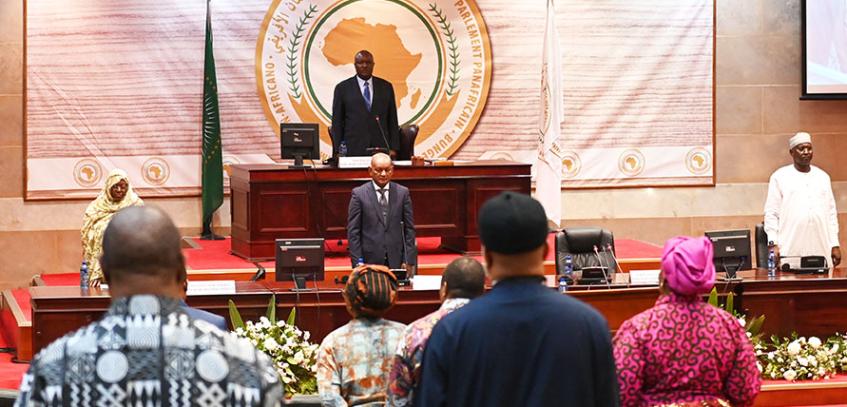The Fourth Ordinary Session of the Sixth Parliament of the Pan-African Parliament concluded in Midrand, South Africa, with significant achievements. Guided by the African Union’s 2024 theme, “Educate an African Fit for the 21st Century: Building Resilient Education Systems for Increased Access to Inclusive, Lifelong, Quality, and Relevant Learning in Africa,” the session underscored the Parliament’s commitment to addressing Africa’s developmental challenges.
The session saw the adoption of key resolutions poised to shape the continent’s future. Among these was the 2024–2028 Strategic Plan, a four-year roadmap aligning the Parliament’s vision with Africa’s overarching priorities. Model laws were also endorsed, addressing pressing issues such as the right to nationality, the eradication of statelessness, and labour migration—marking critical steps toward protecting human rights and advancing social justice. A resolution on peace and security reaffirmed the Parliament’s dedication to combating conflict and promoting stability across the continent.
Additionally, the Pan-African Parliament resolved to actively participate in the United Nations Summit for the Future, amplifying Africa’s voice on the global stage. A declaration of solidarity with Palestine highlighted the Parliament’s enduring advocacy for justice and self-determination.
Emerging recommendations emphasized the need for further action. These included fostering an Africa fit for children through joint seminars on Agenda 2063, advocating for the ratification of protocols on the rights of older persons, persons with disabilities, and social protection, and addressing challenges related to industrialisation and economic integration. The Parliament stressed that its decisions must translate into actions that drive tangible progress.
A prominent outcome of the session was a declaration of solidarity with the people of Palestine. The Parliament called for an immediate cessation of armed conflict and military activities in Palestinian territories. It urged Israel to cease its attacks and withdraw from occupied Palestinian lands to end longstanding hostilities. The declaration further called on the African Union (AU) to prioritize the Palestine question by formulating a resolution advocating for peace and justice. The Parliament also recommended designating a specific day for collective African solidarity with Palestine, reflecting Africa’s historical commitment to justice, self-determination, and human rights.
H.E. Chief Fortune Charumbira, President of the Pan-African Parliament, expressed profound gratitude to members for their dedication and contributions. Reflecting on initial challenges, including logistical setbacks, he commended members for their resilience and unity. He acknowledged the collective efforts that achieved significant milestones and encouraged members to bring these achievements back to their national parliaments for effective implementation. Chief Charumbira noted that the session’s successes were a testament to the shared commitment to Africa’s development and urged members to sustain this momentum in their future work.
Hon. Dr. Fatimetou Habib, the newly elected First Vice President of the Pan-African Parliament, extended heartfelt thanks to her colleagues for their support and pledged to fulfill the responsibilities of her new role with dedication. She emphasized the importance of collaboration and expressed gratitude to the bureau members and staff for their contributions.
Second Vice President Hon. Dr. Ashebiri Gayo echoed the sentiments of unity, calling for continued collective efforts to advance Africa’s development agenda. He urged members to maintain their commitment to fostering stronger collaboration among African legislators.
As the session concluded, members were reminded of their shared responsibility to drive the implementation of Agenda 2063 and ensure the success of the African Continental Free Trade Area (AfCFTA), a pivotal tool for economic liberation. The Parliament reiterated its role in promoting peace, addressing conflicts, and emphasizing financial accountability within the African Union. Mobilizing resources to support its activities was highlighted as a key priority.
The closing session reflected a profound commitment to Africa’s collective progress. Members were urged to report the session’s outcomes to their national parliaments and engage their citizens on the importance of the Pan-African Parliament. By fostering greater awareness and collaboration, the Parliament aims to ensure its resolutions, recommendations, and declarations translate into meaningful action, reinforcing its role as a cornerstone institution in Africa’s transformation journey.
-Ends-








